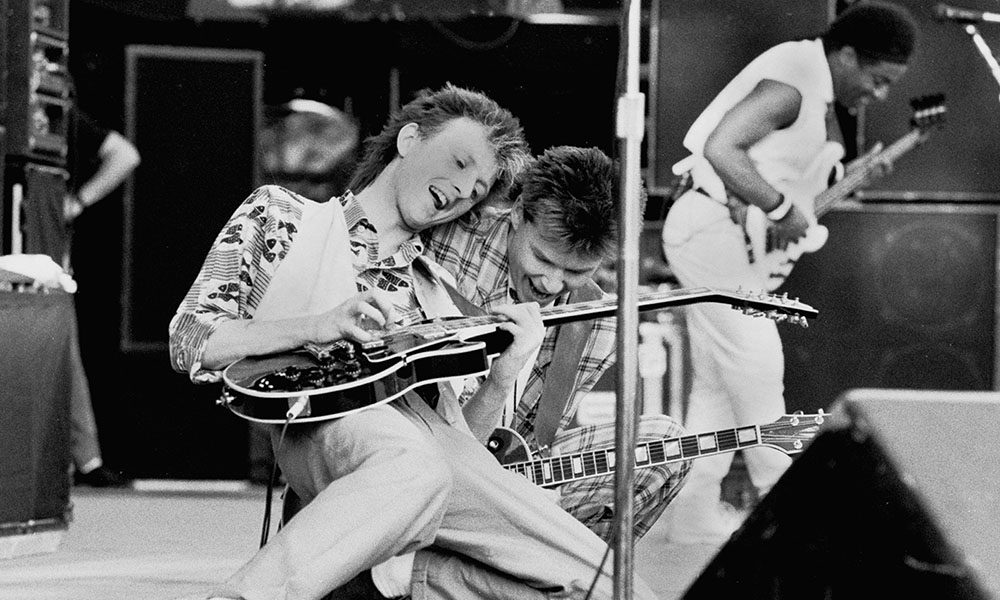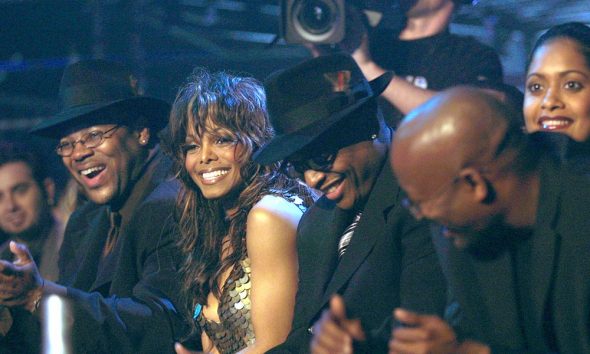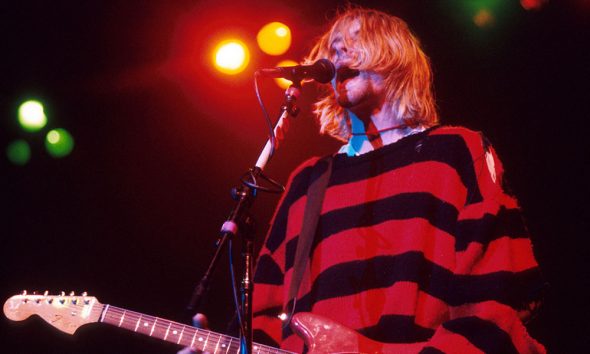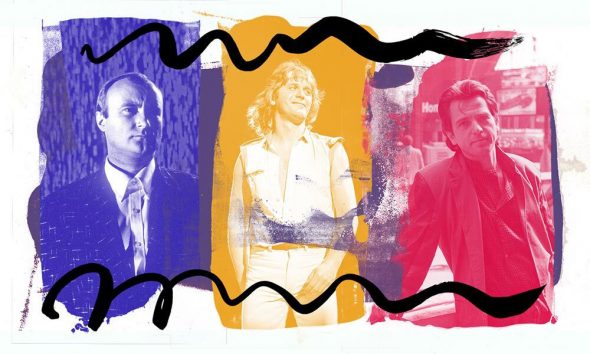Big Country
Big Country came into view at the start of the 1980s with a tartan soul-stirring sound that reinvented the Celtic tradition in rock music.

Big Country came into view at the start of the 1980s with a soul-stirring sound that reinvented the Celtic tradition in rock. Wearing their Scottish heritage as a fiercely defining musical badge of pride, they wrote and recorded tartan rock anthems of passionate character and unshakeable integrity. When they put out their compilation album, Through A Big Country: Greatest Hits, in 1990, it boasted no fewer than 16 UK chart singles, at which point they bravely struck out in a new direction setting their songs against the musical backdrop of an even bigger country – America. The commercial decline and eventual break-up of the group, followed by the suicide of the singer and leader Stuart Adamson in 2001, is one of the darker and less-told stories of rock lore.
Big Country emerged from the aftermath of the UK punk scene in the late 1970s. Stuart Adamson had been the guitarist in the Dunfermline-based group the Skids, one of the first Scottish acts from that era to make the transition from local heroes to national chart success with hits including ‘Into The Valley’ and ‘Working For The Yankee Dollar’. In keeping with the spirit of the times, Adamson moved quickly on, putting together his own band as featured singer together with local guitarist Bruce Watson and a rhythm section of London session musicians Tony Butler (bass) and Mark Brzezicki (drums).
Their first single ‘Harvest Home’, released in 1982, was a harbinger of the hits to come – a chanted chorus, driven along by skirling guitars, a galloping drum beat, and ancient folk wisdom: “Just as you sow, you shall reap”. The song remained a perennial live favourite, even though it was the only one of their early singles which failed to reach the chart. The first album, The Crossing, released in 1983, refined and defined the band’s unique approach. At a time when British pop was dominated by synthesizer bands from Depeche Mode to the Human League, The Crossing produced by Steve Lillywhite (who also produced U2 and Simple Minds), swam defiantly against the tide. The band’s twin guitar attack, with its high-pitched tone and distinctive, Caledonian cadences, was often likened to the sound of bagpipes – an unusual comparison which underlined the group’s distinctive sound and Celtic folk roots. Housing the hit singles ‘Fields Of Fire (400 Miles)’, ‘In A Big Country’ (the band’s only US hit) and ‘Chance’, The Crossing was certified platinum in the UK and established the band as a new driving force in a British rock scene that had rather lost its way.
A stand-alone single, ‘Wonderland’, restating the theme of an honest life lived in the great outdoors, sailed into the UK Top 10 at the start of 1984. Then, in October, the band’s second album Steeltown, again produced by Lillywhite, entered the UK chart at No.1. The title track told the story of the Scottish diaspora of 1935 at the height of the Great Depression when workers reluctantly sought employment in the newly-opened steelworks in Corby, Northamptonshire. “All the landscape was the mill/Grim as the reaper with a heart like hell,” Adamson sang as the band pumped out a beat like a great, industrial steam hammer. With its Soviet propagandist cover artwork, the album captured the oppositional mood of the times in the UK during the Thatcher years when the industrial landscape was blighted by mine and factory closures.
Although invited to perform on the Band-Aid charity single ‘Do They Know It’s Christmas?’, Big Country missed the session (they added a spoken message to the B-side). More significantly, despite being an obvious fit, they did not perform at the televised Live Aid concert in 1985 – other than joining the impromptu mass-choir finale of ‘Do They Know It’s Christmas?’. This historic event created a new pop aristocracy overnight. While their contemporaries U2, Simple Minds and many other prominently featured acts smoothly moved into a new global superstar bracket, Big Country stayed where they were.
Which wasn’t a bad place to be. The band’s third album, The Seer, released in 1986 found Big Country at the peak of their powers, exploring their now-familiar brand of Celtic rock with supreme panache and confidence. Adamson engaged in an animated duet with Kate Bush on the title track, a song which dug deep into the soil to expose the band’s folk roots, while ‘Look Away’ became the highest-placed single of Big Country’s career, peaking at No.7 in the UK and going all the way to No.1 in Ireland. The Seer reached No.2 in the UK, prevented from reaching the top only by Madonna’s True Blue.
To mark the release of their 1988 album Peace In Our Time, Big Country’s management invested heavily in a promotional visit to the Soviet Union, flying more than 250 media folk on an expenses-paid junket to Moscow, where the band staged a series of self-promoted concerts at the Palace Of Sports. It was a bold and unprecedented idea which guaranteed an impressive crescendo of news exposure around the world. It also landed the group with a vast bill which their record company was prepared to foot only in part.
The album, produced and recorded by Peter Wolf in America, had a distinctly trans-Atlantic gloss. But although the sentiment was timely and well-intentioned, the Peace In Our Time campaign was a promotional catastrophe. Released as a single, the title track was sold with postcards included for fans to send to the White House and the Kremlin demanding immediate action to secure world peace. Whatever impact this may have had on world leaders, it was not enough to lift the single beyond No.39 in the UK chart or to galvanise sales of the album, which made a brief appearance in the UK Top 10 before fading swiftly from view. Ironically, little more than a year later the Berlin Wall was demolished and the iron curtain lowered. Maybe those postcards had not been entirely in vain, after all.
Big Country returned from their Moscow adventure exhausted, dispirited and virtually bankrupt. The group officially split up, and even though they reconvened within a few weeks, Brzezicki would only re-join as a paid session man. The checked-shirt, bagpipe-guitar tag had turned into an artistic straitjacket well before this point and the band made a radical musical departure with their 1991 album No Place Like Home. The first single ‘Republican Party Reptile’ was more dustbowl blues than Highland fling and other tracks featured the banjo, mandolin and honky-tonk piano as the band explored an assortment of Americana traditions including country, folk and Southern blues. There were some fine moments on this underrated album, notably ‘The Hostage Speaks’, a song about Middle Eastern politics with an eerie, desert-baked riff that was at least a decade ahead of its time. But somewhere between Moscow and the Madrassas, the band had left behind a substantial chunk of their audience.
Having abandoned the formula which generated the mass-market sales of their heyday, Big Country embarked on a string of artistically rewarding but commercially underperforming albums including The Buffalo Skinners (1993), Why The Long Face (1995) and Driving To Damascus (1999). Looking back over this period, Watson declared it to be “The happiest time of our career. It was just the four of us, jeans, T-shirts, playing good rock music and being appreciated for it.”
But the journey was not so straightforward for Adamson. He moved to Nashville in 1996 where he teamed up with songwriter Marcus Hummon to form an alt.country duo called the Raphaels. Their debut album, Supernatural, was released in August 2001, by which time Big Country had already played a ‘Final Fling’ farewell tour before formally disbanding in October 2000.
As a recovering alcoholic who had remained sober for a decade, Adamson could not have chosen a worse moment to fall off the wagon. At the age of 43, he found himself without his band, estranged from his wife (who was filing for divorce) and due in court to face drunk-driving charges. He hanged himself in a hotel room in Honolulu on 16 December 2001.
Adamson’s life was celebrated at an emotional memorial concert in Glasgow in 2002 by his former bandmates from both Big Country and The Skids. And more recently his musical legacy has been revived in Big Country reunion tours in 2007 and 2010/11. A new Big Country album, The Journey, was released in 2013, written and recorded by a line-up comprising Brzezicki, Watson and Watson’s son Jamie on guitar, together with singer and guitarist Mike Peters (of The Alarm) and bass player Derek Forbes (of Simple Minds).
Words: David Sinclair












